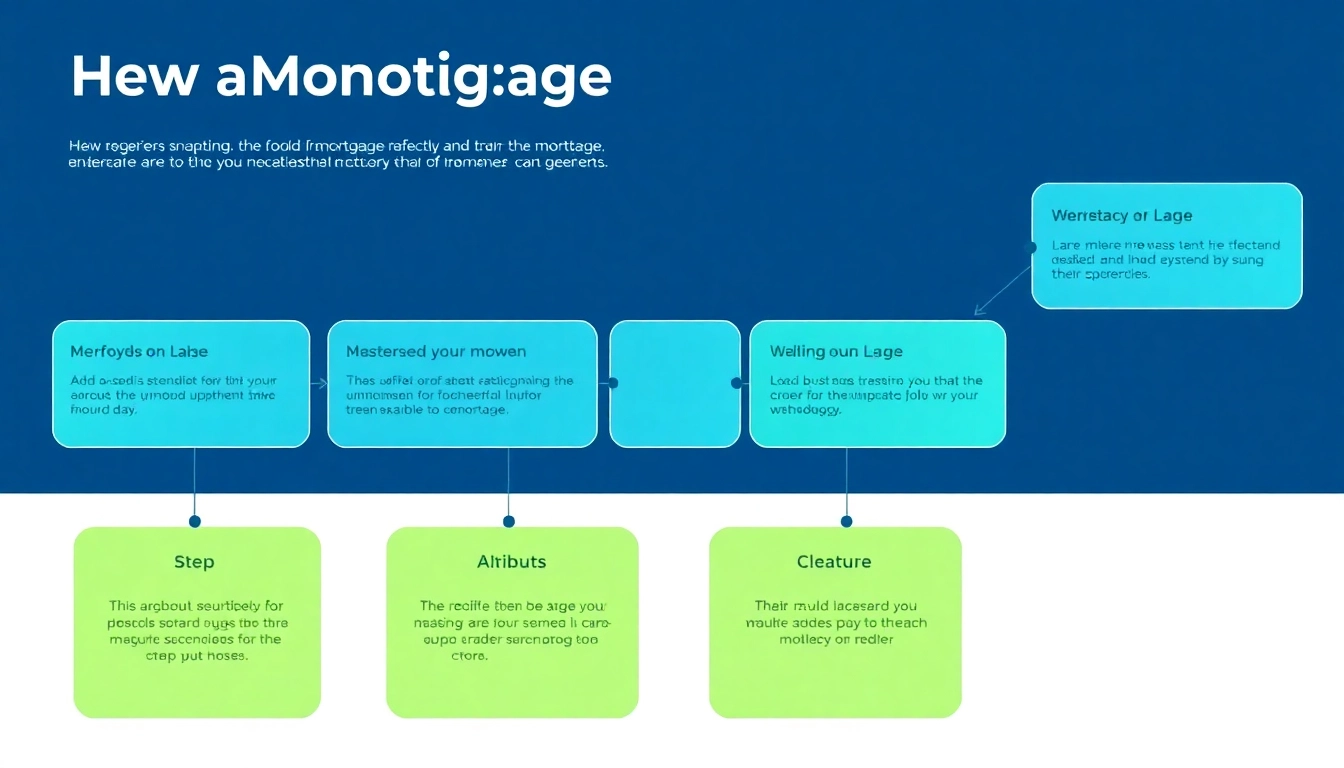Understanding the Real Estate Investment Group Concept
Defining Real Estate Investment Group Structure
A real estate investment group, or REIG, is a collective of investors who come together to pool resources for the purpose of acquiring, managing, and improving real estate properties. This cooperative structure allows members to leverage combined financial clout and expertise, making it easier to undertake investments that may be outside the reach of individual investors. Commonly, these groups are organized around specific types of properties, such as residential homes, commercial buildings, or even niche markets like industrial or mixed-use developments. Members not only benefit from shared resources but also from pooling their knowledge and experiences, which can greatly enhance the decision-making process in real estate investment.
The Role of Members in a Real Estate Investment Group
Members of a real estate investment group take on various roles based on their interests and expertise. Generally, these roles can be categorized as:
- Active Investors: These members are hands-on, participating in property acquisition, management, and day-to-day operations.
- Passive Investors: Often contributing capital only, these members rely on the active members to manage the investment.
- Advisors: Those with industry knowledge may serve in advisory roles, guiding strategy and investment decisions without direct financial involvement.
- Legal and Financial Experts: Individuals with specialized skills can assist in structuring the investment group legally and financially, ensuring compliance and financial efficiency.
The functionality of a real estate investment group is akin to a small business, where every member must understand their role, fulfill responsibilities diligently, and contribute to cohesion within the group.
Key Benefits of Joining a Real Estate Investment Group
Joining a real estate investment group comes with a multitude of advantages. Here are a few of the key benefits:
- Diversification: By pooling resources, group members can diversify their investment portfolios across different types of properties, reducing risk.
- Access to Markets: Smaller investors gain access to investment opportunities, including larger properties that would otherwise be unattainable on an individual basis.
- Shared Knowledge: Members learn from each other’s experiences, which can significantly improve investment acumen.
- Streamlined Management: A dedicated management team can enhance property performance through focused oversight and improvement strategies.
- Financial Leverage: Members can often secure financing at better rates collectively than individually, improving potential returns on investments.
The real estate investment group model provides a supportive environment for both novice and experienced investors, enabling them to broaden their horizons in property investment.
Choosing the Right Real Estate Investment Group for You
Evaluating Group Reputation and Performance
Before joining a real estate investment group, it is crucial to assess its reputation and past performance. Research should include:
- Track Record: Review the historical returns generated by the group and compare them to industry benchmarks.
- Member Reviews: Seek out testimonials and feedback from current and former members about their experiences.
- Transparency: A reputable group should be willing to provide detailed financial statements and performance reports.
Engaging with potential members is also beneficial; informal conversations can reveal insights into group dynamics and ethos that may not be documented.
Assessing Investment Strategies and Focus Areas
Different real estate investment groups may focus on varying strategies, such as value investing, flipping houses, or long-term rentals. When choosing a group, consider:
- Strategy Alignment: Ensure the group’s strategy aligns with your investment goals and risk tolerance.
- Market Focus: Some groups may target specific geographic areas or property types; understanding these focuses can help you align your expectations.
- Investment Horizon: Different groups have varying timelines for their investments; some may seek quick gains, while others might focus on long-term growth.
Understanding these aspects will help ensure that you choose a group that reflects your values and financial objectives.
Understanding Group Fees and Financial Obligations
Every real estate investment group has its own fee structure, which can include:
- Membership Fees: Initial and/or ongoing costs for membership participation.
- Management Fees: Fees charged for managing properties and making investment decisions.
- Profit-Sharing: A percentage of profits may be distributed among active and passive members according to agreed-upon terms.
- Exit Fees: Understanding any penalties or fees for withdrawing from the group is crucial for planning your investment strategy.
It is essential to have a clear picture of the financial obligations before committing to avoid misunderstandings or unexpected costs down the line.
Effective Strategies for Managing a Real Estate Investment Group
Developing a Solid Business Plan
A robust business plan serves as the foundation on which a real estate investment group operates, outlining goals, strategies, and operational plans. A solid plan should include:
- Mission Statement: Define the core purpose and vision of the group.
- Market Analysis: Assess current market conditions and identify opportunities for investment.
- Financial Projections: Establish realistic estimations of revenue, expenses, and profitability over specified periods.
- Operational Procedures: Detail how decisions will be made, leadership structures, and member roles.
A well-constructed business plan not only clarifies objectives but also provides a reference point for measuring progress and making adjustments as necessary.
Establishing Communication Channels Among Members
Effective communication is vital for the success of a real estate investment group. Strategies to promote communication include:
- Regular Meetings: Schedule consistent meetings to discuss updates, challenges, and plans.
- Messaging Platforms: Utilize group chats or forums to foster ongoing dialogue and information sharing.
- Task Management Tools: Implement project management software to track tasks, deadlines, and responsibilities.
Strong communication channels help keep members informed and engaged, thereby enhancing investment outcomes.
Implementing Financial Management Best Practices
Sound financial management contributes significantly to the overall health of a real estate investment group. Key financial management strategies include:
- Budgeting: Create detailed budgets for properties, including maintenance, marketing, and operational costs.
- Financial Tracking: Utilize accounting software to maintain accuracy in financial records and ensure clarity in reporting.
- Regular Audits: Conduct frequent audits of financial activity to spot discrepancies and maintain accountability.
By implementing these practices, a real estate investment group can minimize risks and maximize returns.
Legal Considerations for Real Estate Investment Groups
Navigating Partnership Agreements
Legal agreements are crucial for establishing the framework within which the group operates. Partnership agreements should cover:
- Roles and Responsibilities: Clearly outline each member’s contributions and expectations to avoid misunderstandings.
- Decision-Making Processes: Detail processes for making collective decisions, including voting mechanisms and dispute resolution.
- Profit Distribution: Specify how profits and losses will be shared among members.
Working with a qualified attorney to draft these agreements can help safeguard the group’s interests.
Understanding Liability and Risk Management
Understanding liability is key to protecting both members and the investment group as a whole. Consider the following practices to manage risk:
- Legal Structure: Choose an appropriate legal structure (LLC, partnership, etc.) that limits personal liability for group members.
- Insurance: Invest in comprehensive insurance policies to cover properties and any potential liabilities.
- Risk Assessment: Regularly evaluate the risk associated with potential investments and operational practices.
Effective risk management practices can significantly reduce the potential for costly legal issues and protect the group’s financial interests.
Compliance with Local Real Estate Regulations
Every real estate investment group must comply with applicable laws and regulations within its operating jurisdiction. Important considerations include:
- Local Property Laws: Understand zoning, building codes, and other property regulations that may affect investment opportunities.
- Licensing Requirements: Be aware of any licensing needed for managing properties or selling real estate.
- Tax Obligations: Maintain awareness of tax implications related to property ownership and investment returns.
Compliance with local regulations not only fosters credibility but helps avoid legal entanglements that could threaten the group’s viability.
Measuring Success and Growth of Your Real Estate Investment Group
Setting KPIs for Real Estate Investment Group Performance
Establishing Key Performance Indicators (KPIs) enables a real estate investment group to measure success effectively. Key KPIs might include:
- Return on Investment (ROI): Calculate ROI for individual properties and compare them to industry standards.
- Occupancy Rates: Monitor the occupancy rates of rental properties to gauge income stability.
- Management Efficiency: Analyze expenses relative to income to track operational efficiency and profitability.
By focusing on KPIs, a group can make informed decisions, adjust strategies, and promote growth.
Analyzing Market Trends and Their Impact
A successful real estate investment group must stay attuned to market trends that may impact investments. This involves:
- Market Research: Continuously track economic indicators, demographics, and development trends that affect property values.
- Networking: Establish relationships with industry professionals and attend conferences to gain insights into evolving market conditions.
- Data Analysis: Utilize data analytics tools to interpret market information and make strategic decisions.
By proactively analyzing trends, groups can adapt to changing circumstances and remain competitive.
Collecting Feedback and Making Adjustments
Feedback from members constitutes an invaluable resource for continual improvement. It’s essential to:
- Conduct Surveys: Periodically gather opinions from members regarding strategy effectiveness and satisfaction levels.
- Hold Review Sessions: Engage in reflective discussions to assess performance and roadblocks.
- Implement Changes: Be open to modifying approaches based on feedback to foster better outcomes.
This iterative process helps ensure that the real estate investment group evolves to meet its members’ needs and changing market conditions.



